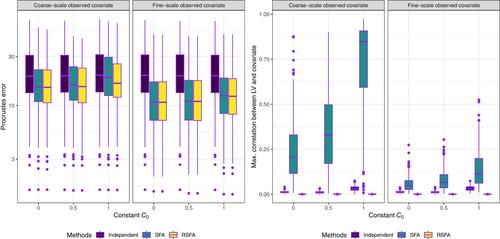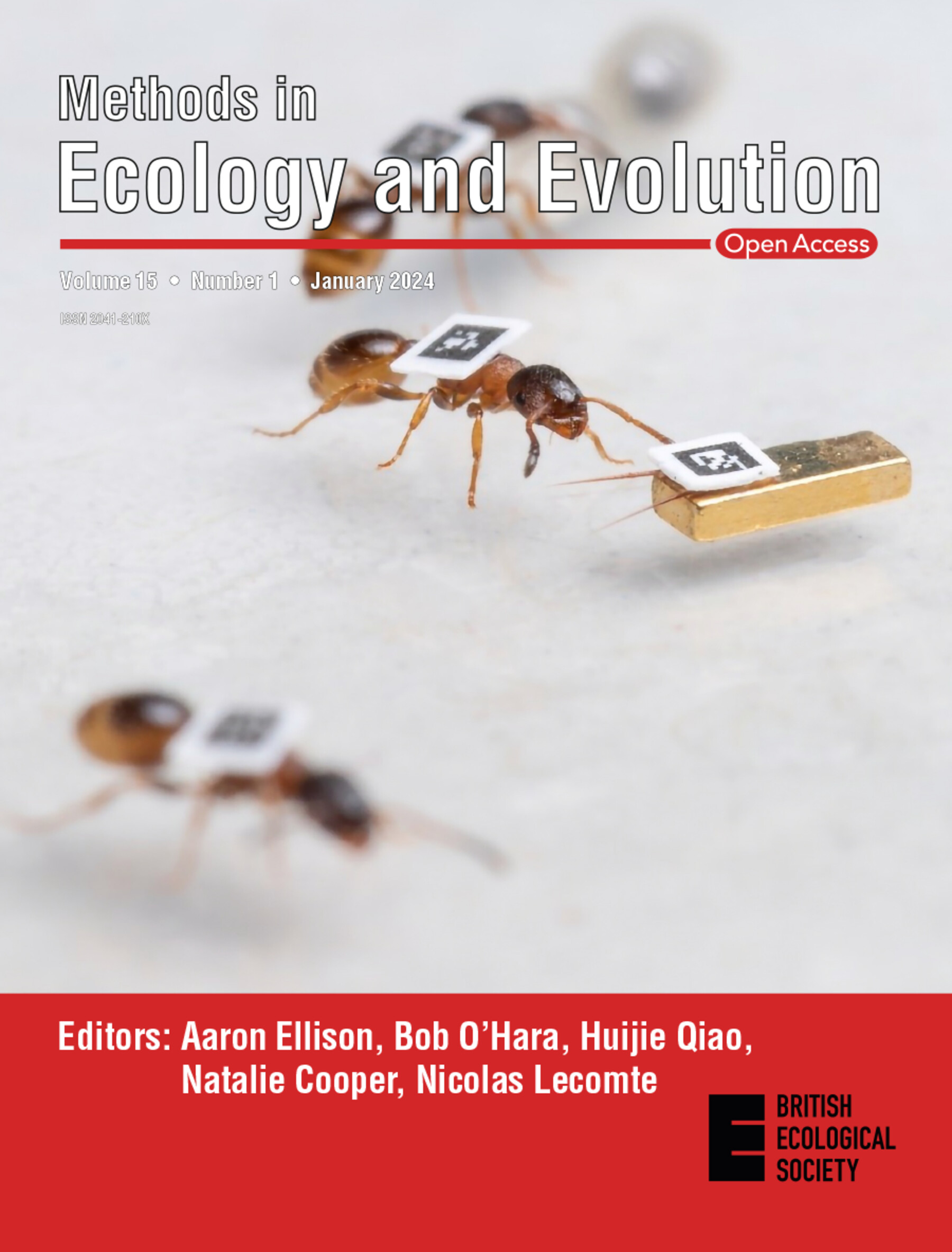Spatial confounding in joint species distribution models
IF 6.3
2区 环境科学与生态学
Q1 ECOLOGY
引用次数: 0
Abstract

物种联合分布模型中的空间混杂因素
物种联合分布模型(JSDMs)是分析多变量丰度数据的常用方法,其重要应用包括揭示物种群落是如何受环境过程驱动的、基于模型的排序以直观显示不同地点的群落组成模式,以及方差分区以量化不同过程在形成物种群落中的相对贡献。在物种联合分布的研究中,一个相对较少关注的问题是空间混杂:当一个或多个环境预测因子表现出空间相关性,而空间结构随机效应(如空间因素)也包含在模型中时,那么这两个部分可能会相互碰撞。通过模拟和案例研究的结合,我们发现如果处理不当,空间混杂会导致对空间结构 JSDM 中协变量效应的推断产生误导,同时也会给解释排序结果带来困难,并错误地将物种群落中的变异归因于环境过程。我们提出了一种处理空间混杂的方法,称为限制性空间因子分析,旨在确保协变量效应保留其全部解释力,并且使用空间因子构建的排序可以解释超出测量预测因子所能解释的物种变异。我们鼓励生态学家考虑他们试图从空间结构的 JSDM 中得出的推论,并确保他们估计和解释的协变量效应和顺序与他们感兴趣的科学问题相一致。
本文章由计算机程序翻译,如有差异,请以英文原文为准。
求助全文
约1分钟内获得全文
求助全文
来源期刊

Methods in Ecology and Evolution
ECOLOGY-
CiteScore
11.60
自引率
3.00%
发文量
236
审稿时长
4-8 weeks
期刊介绍:
A British Ecological Society journal, Methods in Ecology and Evolution (MEE) promotes the development of new methods in ecology and evolution, and facilitates their dissemination and uptake by the research community. MEE brings together papers from previously disparate sub-disciplines to provide a single forum for tracking methodological developments in all areas.
MEE publishes methodological papers in any area of ecology and evolution, including:
-Phylogenetic analysis
-Statistical methods
-Conservation & management
-Theoretical methods
-Practical methods, including lab and field
-This list is not exhaustive, and we welcome enquiries about possible submissions. Methods are defined in the widest terms and may be analytical, practical or conceptual.
A primary aim of the journal is to maximise the uptake of techniques by the community. We recognise that a major stumbling block in the uptake and application of new methods is the accessibility of methods. For example, users may need computer code, example applications or demonstrations of methods.
 求助内容:
求助内容: 应助结果提醒方式:
应助结果提醒方式:


